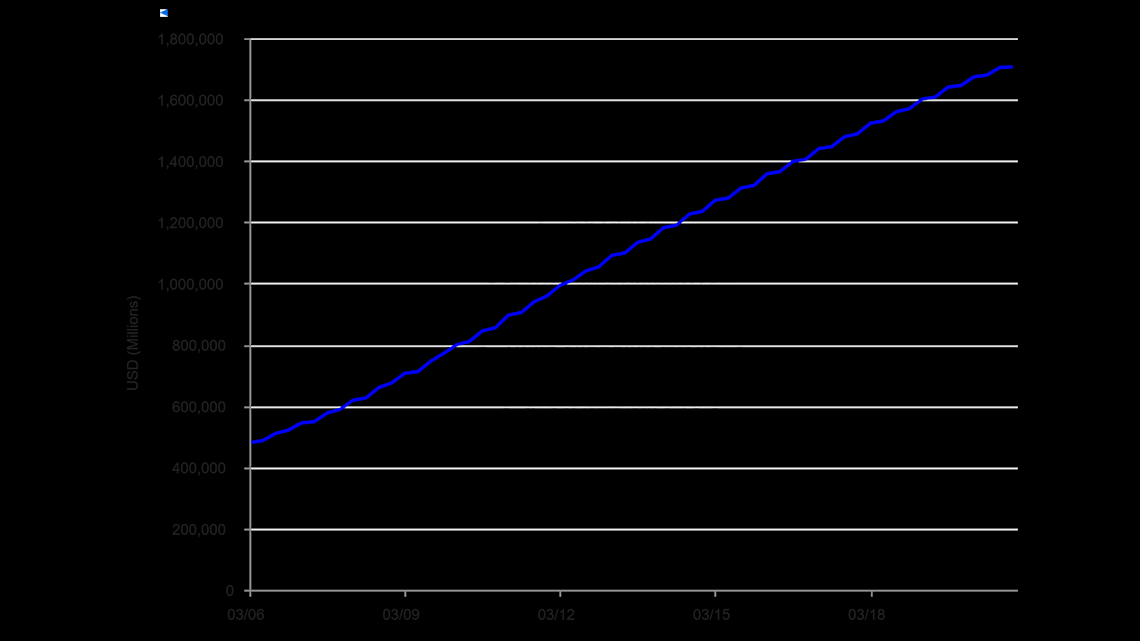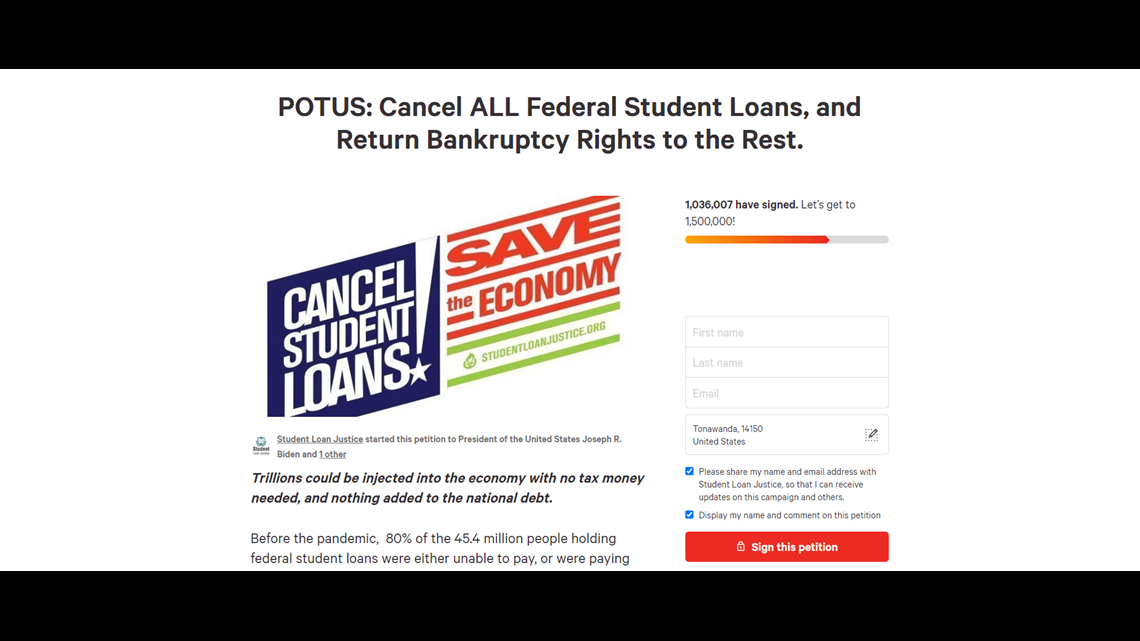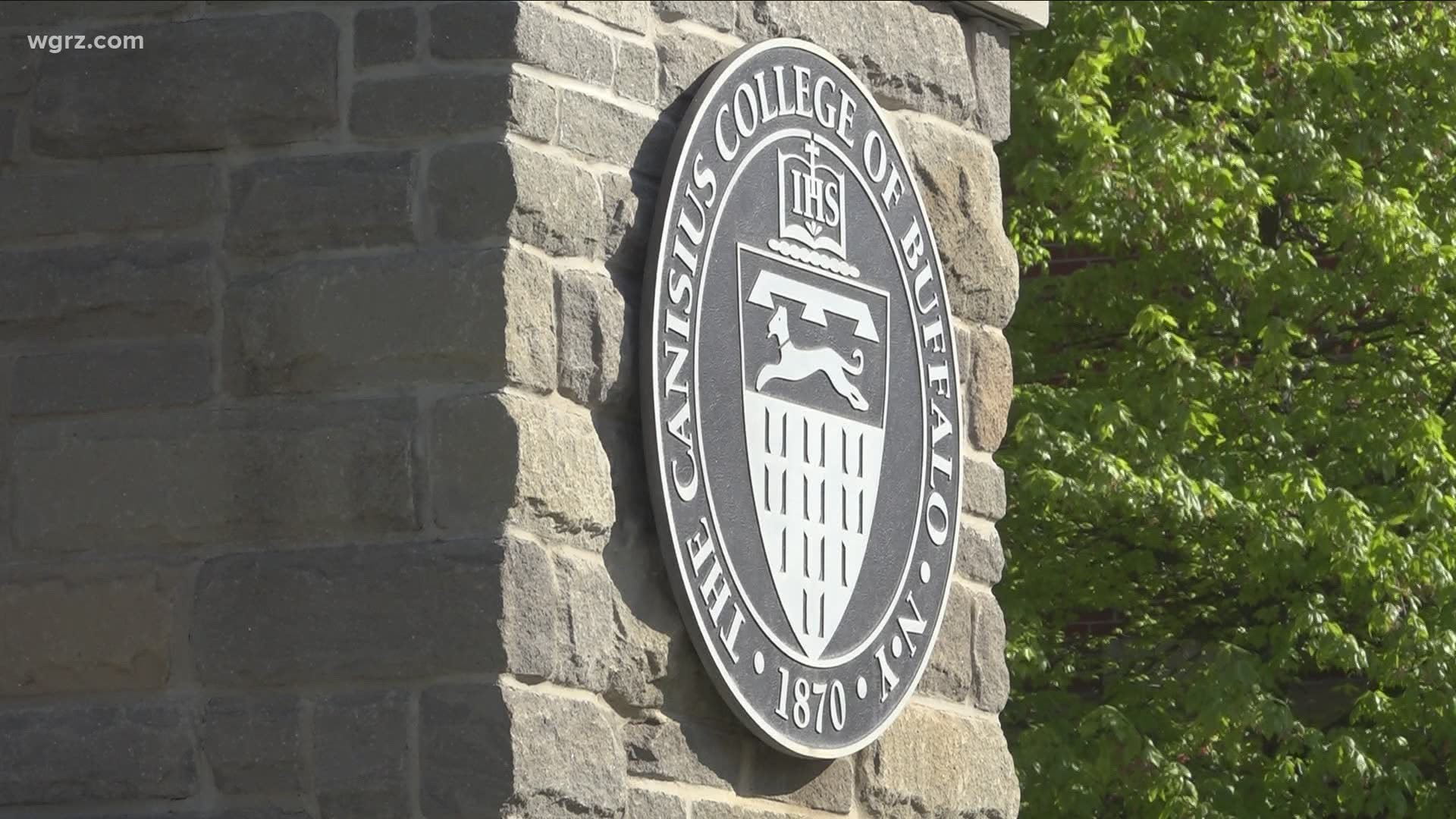BUFFALO, N.Y. — It’s the payment that millions of Americans make every month as they try to whittle away the cost of their college education.
Student loan debt as of March 2021 accounted for over $1.7 trillion dollars according to the U.S. Federal Reserve. But could a portion of that debt be suddenly forgiven?
As lawmakers make their push for student loan forgiveness, others are questioning whether it's really the best solution. One thing is clear, student loan debt is massive.
It's greater than the sum of every car loan in America, the same for credit card debt. Only mortgage debt clocks in higher.
Student loan debt has been growing for decades, but over the past year and two months, the federal government has allowed people to defer paying it back; a result of the pandemic.


"I understand why D.C. is having this conversation right now," said University at Buffalo Higher Education and Policy Professor Dr. Nathan Daun-Barnett.
The White House and Congressional Leaders leaders, like New York Senator Chuck Schumer (D) and Sen. Elizabeth Warren (D-MA), have said forgiveness could benefit 45 million Americans. President has proposed canceling up to $10,000 while Schumer and Warren up to $50,000.
"For much of American history, education has been the ladder up. For too many these days, student debt has become the anchor weighing them down," said Senator Schumer on the floor of the U.S. Senate on March 16.
"To me personally student loans are a double-edged sword. They've made college accessible for some, but they've limited opportunities beyond college for others," said Daun-Barnett.
As you might imagine, forgiving up to $1.7 trillion dollars in federal student loans has proven to be very popular among those with outstanding loans, including Alan Collinge the founder of StudentLoanJustice.org.
Collinge started an online petition on Change.org that has now amassed over 1 million signatures.


"People need to rethink what they know about student loans," said Collinge.
"This is not a partisan problem, this is not a young person’s problem either. You know there are more people over the age of 50 with student loans than under the age of 25 and they owe three-times more than that younger group."
More than forgiveness, Collinge wants to reform the entire student lending system, restore bankruptcy protections for loans and slow the rising cost of college.
"So we are now calling on President Biden to cancel all federally owned student loans which he can do by executive order," Collinge said.
But whether the President can actually forgive $1.7 trillion unilaterally, meaning without help from Congress remains unclear. While supporters like StudentLoanJustice.org and Senator Schumer believe he can, many others believe the action would be unconstitutional.
Even the White House hasn't made a final call. When Press Secretary Jenn Psaki was asked about forgiveness during a February 17 press briefing, she responded stating, "There’s a legal consideration that needs to take place, I think everybody agrees, there is policy consideration and once that [review] is concluded he [the President] will decide a path forward."
She added, however, if Congress were to pass forgiveness legislation the President would sign it. But, with limited bi-partisan support and all Democratic co-sponsors in both the House and Senate, that is unlikely to happen.
The U.S. Department of Education started that review a few months later in early April and it's unclear when the results will be released.
Senator Elizabeth Warren has held at least one hearing in which higher education experts, students, and lawmakers on all sides of the issue have testified.
Dr. Beth Akers, Resident Scholar at the American Enterprise Institute explained in an April 13, "Senate Banking, Housing, and Urban Affairs Committee Hearing" that while forgiveness would provide immediate benefit, it could inadvertently lead to the further inflation of college tuition.
Akers added that minority, first-generation and low-income students are typically the most impacted by excess student loan debt and said that there may be better ways to solve this issue.
"Some may argue that these facts may justify a blunt interaction like mass loan cancellation which would not require borrowers to jump through hoops but that’s not the case," said Dr. Akers.
Nathan Daun-Barnett from the University at Buffalo partially agrees.
"I don't think talking about student loan forgiveness as a stimulus is the right way to deal with this and it doesn't really deal with our underlying problem which is that many students are taking out more debt than they're prepared to manage," said Daun-Barnett.
Instead of using loan forgiveness as a short-term solution, he believes that doubling the Pell Grant, adding more financial counseling, and improving the application processes for taxpayer-funded programs things like ‘Public Service Loan Forgiveness" or PSLF, would be time better spent by lawmakers.
According to data from StudentAid.gov 98% of applicants fail to qualify for PSLF which is a program designed to reimburse students for time worked in certain public sector jobs like, social work.
"I think we as a society benefit when more students are educated but society needs to assume the risk of that investment. If it doesn’t pay off for everybody, which it won’t every investment is a risk then we should assume some part of that responsibility, Daun-Barnett said.
In the meantime, financial advisors recommend seeking out individual advice but in general, if you have student loans and can afford to pay them off right now it’s best to keep chipping away.\

